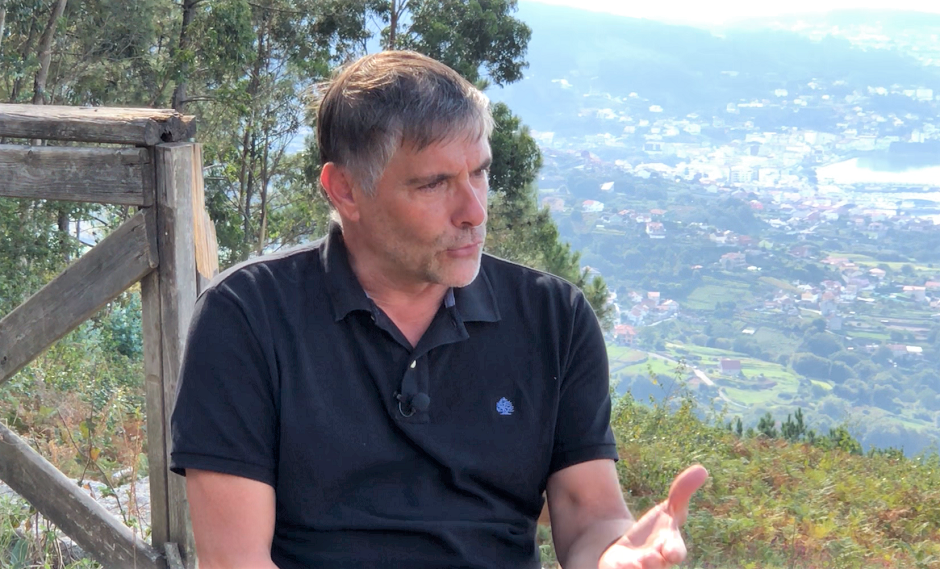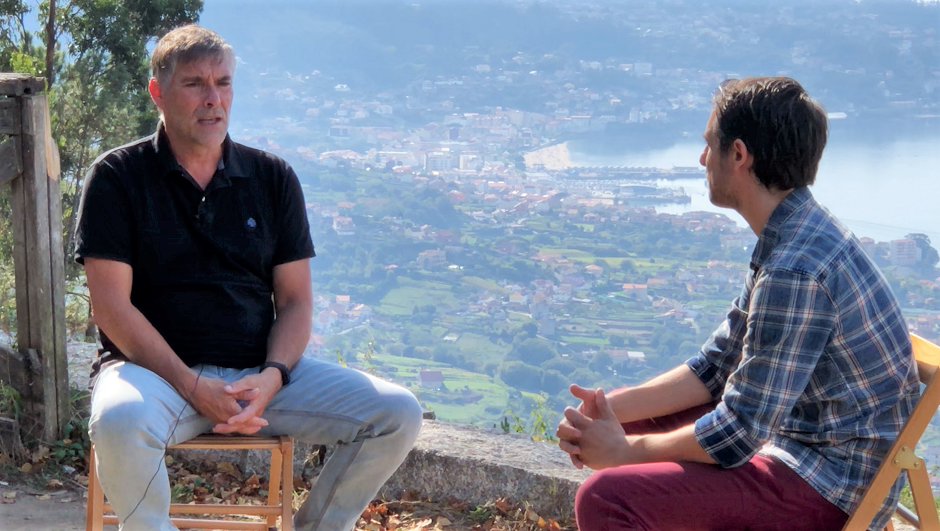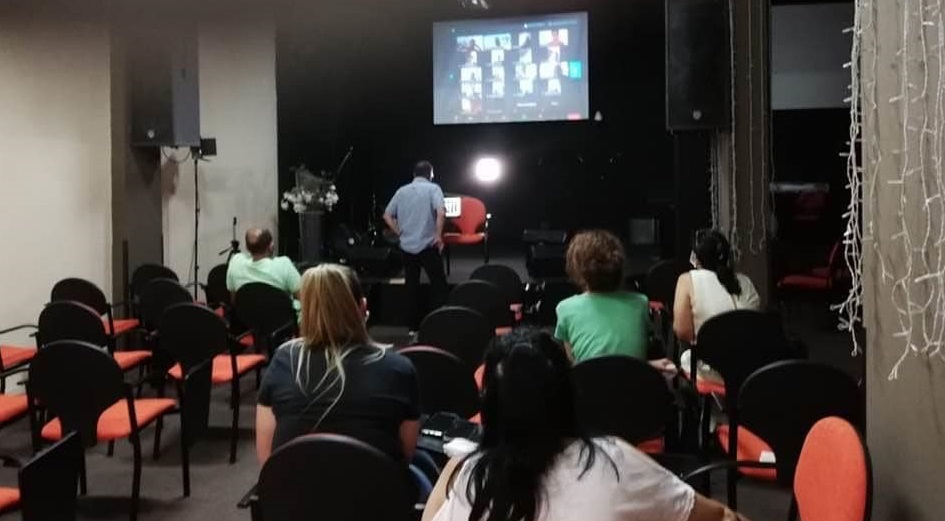The church and the pandemic: “This is a time to test ourselves”
The online ministry of pastor José Manuel Sierra’s church in Tenerife grew exponentially as the pandemic hit Spain. “Some have converted while watching the worship services, they have lots of questions”.
TENERIFE · 16 OCTOBER 2020 · 08:05 CET

Just as many other local churches around Europe, the New Life Evangelical Centre in Tenerife (Canary Islands, Spain) had to suddenly put on hold all of its activities as a heavy lockdown was imposed in March 2020.
Little they knew, explains pastor José Manuel Sierra, that their ministry of preaching and pastoral care would grow massively in the following months, as they continued their mission behind closed doors.
Tens of thousands watch each and every one of of the messages the church uploads on its Youtube channel, and hundreds comment on the daily live devotionals on Facebook. These figures might be average for some large churches in other contexts, but are surprising for a church in Spain, where evangelical Christians are less than 1% of the population.
The day after the government declared the state of alarm, José Manuel and a few members of his family were alone in the church building as he recorded his Sunday message on video. “It was a struggle, it’s was not easy to preach to a church of empty chairs, but on the other hand, we felt the backing of the Lord”.
As for everyone else, the Covid-19 crisis took the Tenerige church by surprise. “No pastor likes to shut the church…Overnight, you are told you can’t open the church. One of those nights I was asking God to give us wisdom to know how to react to this situation”.
For 11 weeks, the premises of the Christian community remained closed to the public, but “it was in that time that things started to happen that we would have never imagined. Thousands started to write to us and get in touch” after seeing one of Sierra’s preachings online. “We realised it was not just a trend for a couple days”, he says, “I almost got scared, thinking: where is all this going?”
Emails, comments on social media started coming, not only from Spain, but also from many other countries in Latin America, and the church leadership came to the conclusion that their ministry should not only provide teaching to be “consumed” but offer spiritual care as well.
“Many who contact us are not converted, others have converted while watching the online worship services and have lots of doubts and questions. Then, there are many believers who had not attended a church for a long time. Right now, our ‘virtual church’, as we call it, is not a homogeneous group, there are people from all kind of backgrounds: Pentecostals, Baptists, Catholics, Atheists, etc…”
A re-organisation to meet the demand
How is this new online community of believers and seekers organised? “To become a member, we ask everyone to respond a form with some questions, then we contact each one personally, and finally they are placed in one of five groups organised by time zones and regions. We organise Zoom [video conference] meetings with these people”. Special focus groups for men, women, couples, and even Catholics, have been set up in the last weeks.
“This could be a 24-hours job, because when we go to sleep, others are waking up on the other side of the ocean and start calling or sending whatsapp messages. We have had to re-structure our whole ministry and create a new team to respond to all the volume of personal communications we get every day”, Sierra says.
Connecting with disconnected people
“God has given us Grace and we are now in touch with many people who have are hurt, people who for a long time have not had the chance to be listened to”. José Manuel himself was not raised a Christian and did not have “the blessing of growing in a context where the Word of God was the basis”.
This, he thinks, helps him to connect with other seekers sharing his own testimony. “I know whom I have trusted, God freed me, healed me, and saved me, and I do not want to keep that to myself. Since the beginning, I was always attracted to share the gospel with non-believers, and started as an evangelist”.

Sierra speaking to journalist Daniel Hofkamp. / Protestante Digital Now this Canary Islands church realises that “we’re not only pastoring a local church, but that thousands of people, many of which I will never meet in person, are listening. This is a responsibility and we ask God for humility and His Grace to continue”.
He says they are witnessing “miracles: people converting to God, families being transformed, people who are able to forgive and heal, and people who are getting in love with studying the Bible”.
The secret?
Is there any secret José Manuel has discovered in the process? “I remember that a pastor I met many years ago said the secret of ministry is constancy. And that word remained with me. I believe God looks at out constancy, and at some point says: ‘Now I will act’”.
That lack of control is what helps Christian workers to be reminded that “it is God who does the work and that we are just tools that He uses for a time”.
A call to the church
The New Life Centre pastor is convinced that “the church needs to understand that there is much more than the traditional model of church. The Lord has placed in our hands tools in these special times, and we are called to be responsible to use them well for the extension of the Kingdom”.
In a context of uncertainty and “radical and drastic change”, people experience “fear” for their family, health, economy, their children’s future. “It is a time for the church to test itself. What kind of faith do we have? I believe we are in a time in which the Lord is dealing with the church”.
“With the closing of temples, there is income and there are activities that have stopped, and the question is: what do we do now? And in that context God comes and surprises us, and shows us that all belongs to Him. This, at least, has been our experience in our church”.

An early online church gathering of the New Life Evangelical Centre. / Facebook Centro Evangélico Nueva Vida “God is giving us objective lessons showing us that now more people are coming near the gospel than when the doors of our church were open”.
Using the available time well
José Manuel looks to his own ministry and says he is “very aware that I will not be doing ministry for another 40 years. We cannot control time. We don’t know how long we will be around or healthy. We don’t even know what will happen in half an hour. I therefore live day to day”. He encourages, especially the young, “to make the most of time: seriously think about how to serve the Lord, with your studies, with your gifts and capacities”.
He finishes the interview addressing the Christian communities. “I would ask the church to wake up, to understand that we are in a time in which the Gospel is preached in a different way, people live differently, and masses are reached through new means. God is giving us more opportunities than we could have imagined”.
Despite all the suffering and the crisis, “this is a marvellous moment in which we see God’s faithfulness in a tremendous way. Now, more than ever, the church has to be the light of the world and the salt of the earth. There are no points of reference left in society, and the church needs to be that point of reference. The Lord is patient so that more will repent. How will they learn about the gospel if we don’t open our mouths?”.
Watch this interview in video here (Spanish).
Published in: Evangelical Focus - europe - The church and the pandemic: “This is a time to test ourselves”
